THE STORY OF A PUBLIC DISGRACE
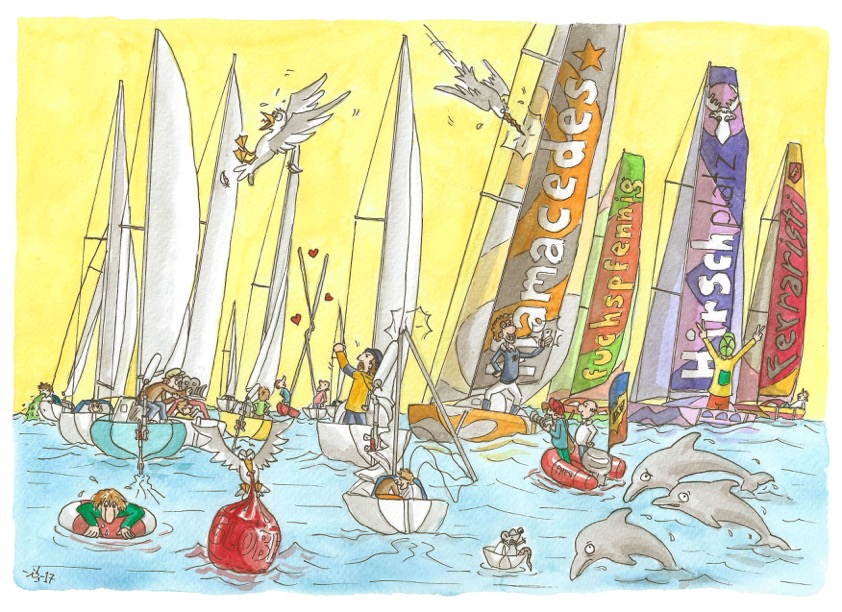
My head works like a magnet, reliably locating and sorting the metal filings so that none of them jams up the gearbox. And the gearbox, of course, is me, the animated homunculus firmly committed to the straight and narrow and the never-ending pursuit of perfection in transom ornamentation. This much I know…
Smaller than the filing in my classification system is the grain of sand,
sand that finds its way into everything from trouser pockets
to toothpaste to window panes to the ground we anchor over…
It’s everywhere – and on a mind-blowing scale.
You can brush it off, wash it off, sweep it off,
relax on it, get excited on it,
miss it and piss on it.
You have to decide:
will you accept it,
make it a part of your life?
Or will you reject it out of hand?
Which is going to be tricky,
for a life without sand is inconceivable!
Sand is like the regular people you meet in life: sometimes great fun, sometimes part of the backdrop, sometimes thoroughly meh, but always plenty around. Mixed in with the human sand are the human filings, those “special”, grating characters whose paths we (regrettably) cross from time to time.
My world – the world of silent self-steering – is a relatively small one and my customers are an unusual (they have boats and the ability to use them) and demanding bunch. Our shark tank is more of a garden pond: everyone soon comes to know everyone else and the predators are few. At the risk of taking the metaphor too far, Istvan was a filing, a blockage that lodged in my filter a few days after the start of the GGR and has now been cleared. There have been other filings of course but, on the whole, I have been able to live my life enjoying good relations and mutual respect with the people around me. That said, I have noticed that mutual respect doesn’t seem to be state of the art any longer: a lack of respect in fact seems to be the disease of our age, with social interaction increasingly reduced to likes and swipes.
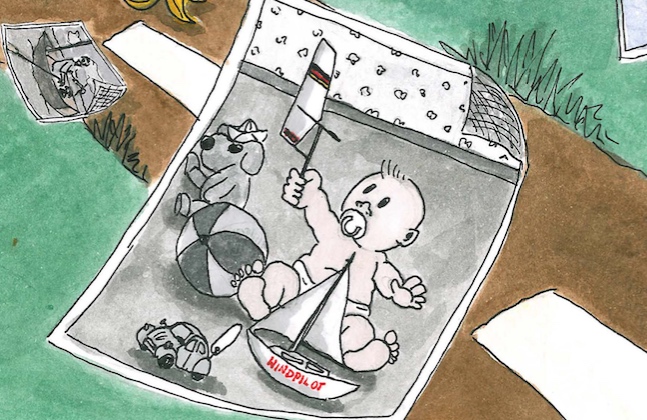
Time for a change then? How about an excursion into the life and work of a manufacturer of windvane self-steering systems endeavouring to bring his messages to a wider audience? What tried and tested means does he have at his disposal to help him secure his position in the market? A tedious return to the principles of marketing? As if…
The GGR has presented me with a handy opportunity to put my life’s strategy under the microscope and examine, based on what I know now that I perhaps didn’t know then, whether my theories still hold up or whether it is time to “slow down a bit” or “put my feet up”.
The Golden Globe Race became the dominant factor in my existence for significant periods over the past year. Am I surprised? I wouldn’t say so: I am used to my human radar never sleeping and my social echo sounder picking up hostile incursions when everything above the water is still all smiles.
THE FUNDAMENTS
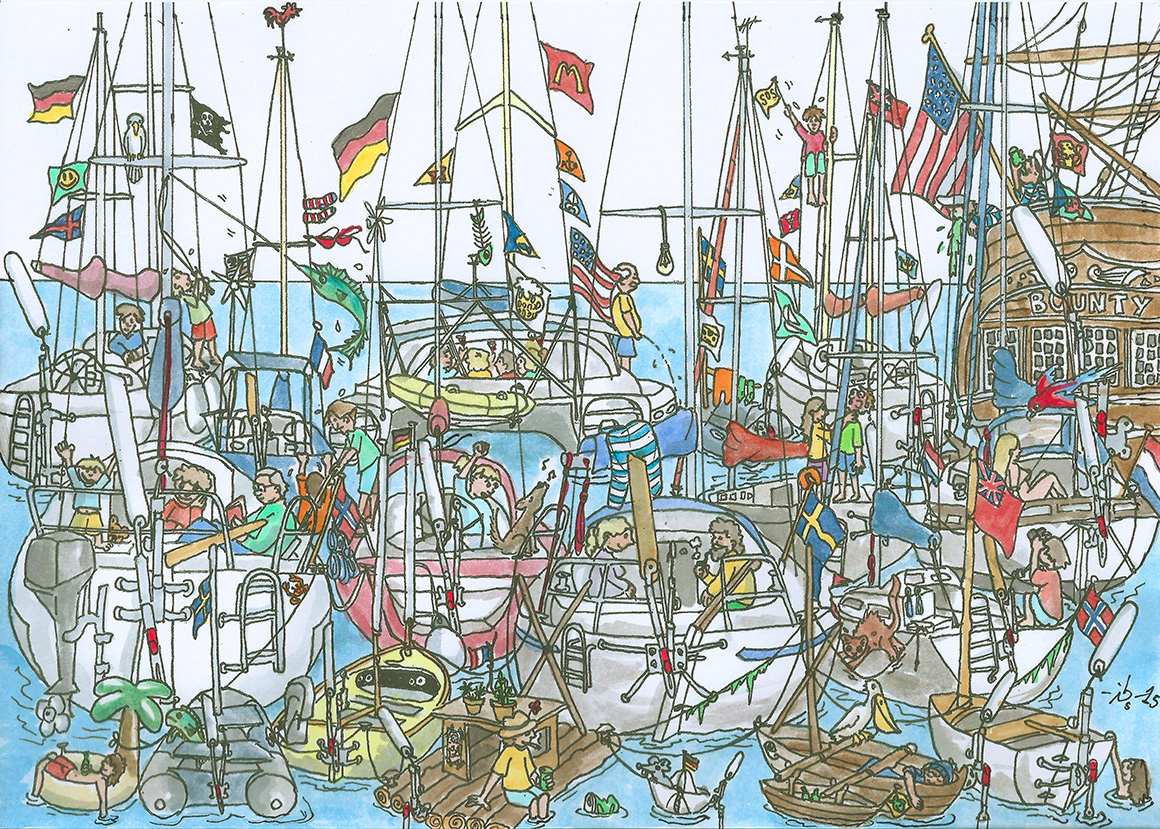
Half a century in the company of the global cruising community has given me quite an insight into the different ways people go about dealing with each other. My reliability and my knowledge of my subject have enabled me to gain the trust of bluewater sailors (established and prospective). They are a demanding but discerning bunch on the whole and having them on my side affords me the incalculable benefit of effective word-of-mouth marketing. Today my marketing policy is as simple as can be: keep it going!
One of the things that make it more difficult to keep the momentum going are the sort of filings I mentioned above. I usually find it most effective to take a direct approach to ironing out “misunderstandings”, but with Istvan I obviously had to wait many long and painful months before that became an option. Meanwhile the machinations of a competitive market continued: everyone wants a piece of everyone else’s share but with effective word of mouth taking decades to build up, the temptation of short cuts is apparently difficult to resist.
I have recorded my experiences in detail and explained, in Peter and the market, how the sunk cost fallacy has become my shadow (although, I should point out, it doesn’t cast a very long shadow over the beauty and pleasure of life). And here I am off on another tangent already, a tangent that leads to contemporaries who – in their own eyes at least – occupy a special place in social traffic between people. I’m talking about journalists; not just any journalists but those know-it-alls who explain the world to their readers in exchange for their daily bread without ever seeming to realise or care how remote their own experience/motivation/respect for integrity is from that of their more earth-bound readership.
How information flows from the media source to the reader is one of the great mysteries of the modern age, not just because it is so difficult to pin down, but also because it leaves so much scope for opinion and interpretation (and because there is often an ulterior motive, monetarisation – or should I say cost-benefit optimisation – lurking out of sight in the background). The media’s main objective here of course is to make sure it works and that the distance is maintained. Editors blessed with strong sales are at risk of complacency and arrogance, however, losing sight of their readers’ needs and expectations and sowing the seeds of their own (or their publication’s) demise: professional standards begin to slip, filings begin to appear in the sand. Which brings me to the end of this latest digression and the beginning of the real meat of this blog:
THE PRESS AT WORK as seen through the prism of the Golden Globe Race

Don McIntyre wisely chose to make media professional and former yachting correspondent of The Times newspaperBarry Pickthall his man at the keyboard for the event. Barry seems to have done a wonderful job too, with his Newsletterbecoming a blueprint for international press reports. His efforts apparently pleased the journalists as much as they must have pleased his boss judging by how many opted for no more than a quick copy and paste in their pursuit of reader views and respect. What more cost-effective way could there be to generate content? Take what one is given, skip the effort and costs that would be involved in actual research and (perish the thought) travel and trust to the fact that most readers stick to their national news outlets and consequently will never notice that the text is virtually the same from country to country.
All that matters is content to fill the pages and keep readers interested, something an event like the GGR – with adventure at its heart and a constant stream of drama virtually assured – is certain to generate in abundance. Every so often chance throws up a more compelling life-or-death story sufficiently entertaining (for the armchair consumer) to break through into the daily press and even the TV news cycle. As a media concept it certainly works, although whether the competitors themselves are best served by this heavily constrained one-party media state, enforced in their case by the strict rules on communication imposed in the name of faithfulness to the original event, is open to question. Or is the idea perhaps more that land-based followers should be grateful for whatever coverage their media see fit to grant them?
WEB ERROR
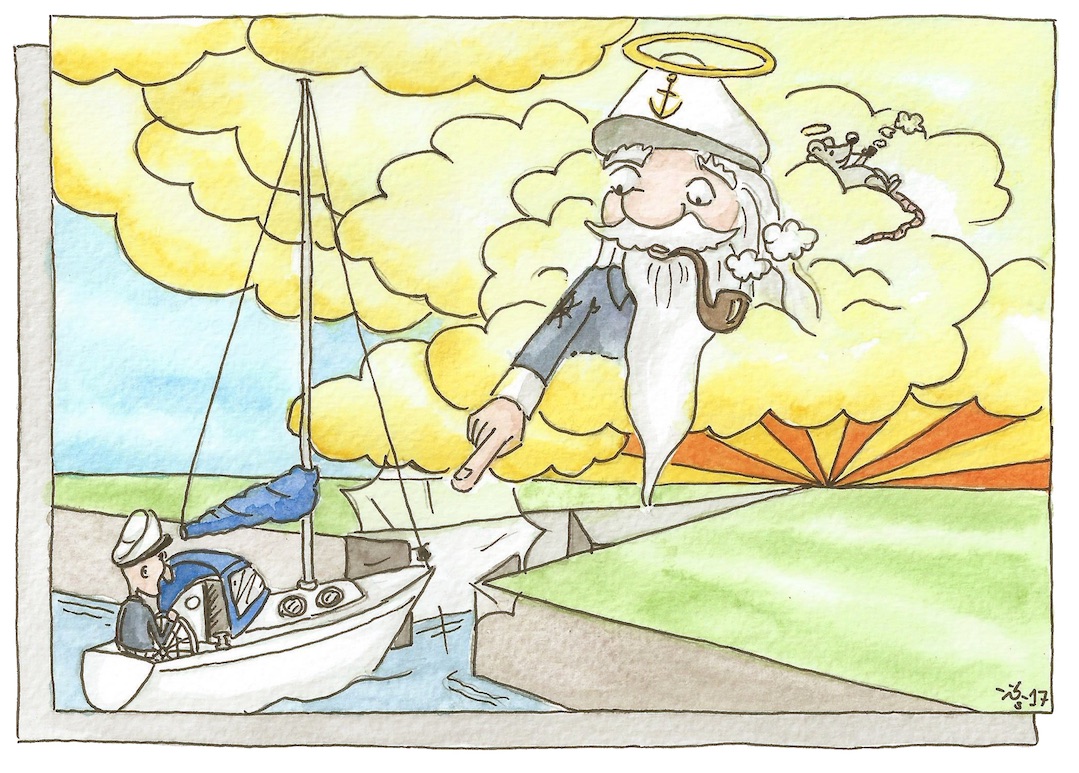
It might be unnecessary to point this out by now, but of course all of the information emerging from the GGR is likely to have come originally from the organiser, a somnambulant soul who did a sponsorship deal with a competitor of mine in the windvane self-steering business. This no doubt seemed like a smart marketing move at the time but soon turned into a hire-wire act (and, frankly, a mistake) for an organiser on account of the difficulty of balancing objectivity with a sponsor’s interests and expectations. Self-steering – inevitably – proved to be one of the big issues of the event and this only made the organiser’s compromised position even harder to overlook. It didn’t need to be like this!
My involvement with the GGR tested me as I have never been tested before. Don McIntyre did a sterling job for his sponsor – while naturally never failing to point out that his observations were of course just a reflection of his own personal experience and preferences (make of that what you will). Take this press release from day 263, by which time Istvan was already home. “The 66-year old yachtsman from Delray Beach, Florida, who suffered continuing steering problems almost from Day 1…” it reads, omitting to mention Windpilot by name but carefully including a big photo of Puffin plainly showing the Windpilot gear on the transom. Message received loud and clear! Don has stuck to his guns throughout despite all of the information sent his way, including by me. Blood pressure rising…
Considering the bigger picture for a moment, the inherent contradiction of claiming to act only in the interests of the GGR sailors while being beholden to one manufacturer of self-steering systems in a race featuring equipment from several different manufacturers is all the more troubling in light of the fact that a lack of sponsors was the event’s main shortcoming.
I drilled down into the detail, lent my support to the sailors (the obvious first priority), shared what I knew with the organiser and the press and then began to write more and more myself about the GGR. Was I tilting at windmills? There was certainly a quixotic element to it (in both the idealistic and the unrealistic senses) and there were plenty of windmills available.
My nine-month barrage of well-founded technical information about all things transom ornamentation seemed never to penetrate the organiser’s head (and definitely never made any impression on his public utterances on the subject). He started with a particular mindset and apparently nothing – neither evidence nor events nor the passage of time – would persuade him to adapt or revise his view or temper his negative comments about anything incompatible with that mindset. This cast an unnecessary shadow over an event that on the face of it would have been quite an attractive prospect and seriously damaged the organiser’s credibility, at least among those familiar with the issues involved and knowledgeable enough to draw their own (accurate) conclusions from all the claim and counterclaim. The situation on social media, where meaningful data and informed comment stand little chance of reaching safe harbour through the maelstrom of emojis and platitudes, is rather different. I would suggest that something has gone very wrong when daily hits count for more in an organiser’s eyes than relevant, objective information capable of satisfying a knowledgeable audience. The profound disinterest of the sailing forums underlines just how the seagoing public feels about the organiser’s confused loyalties.
THE STONY PATH OF TRUTH
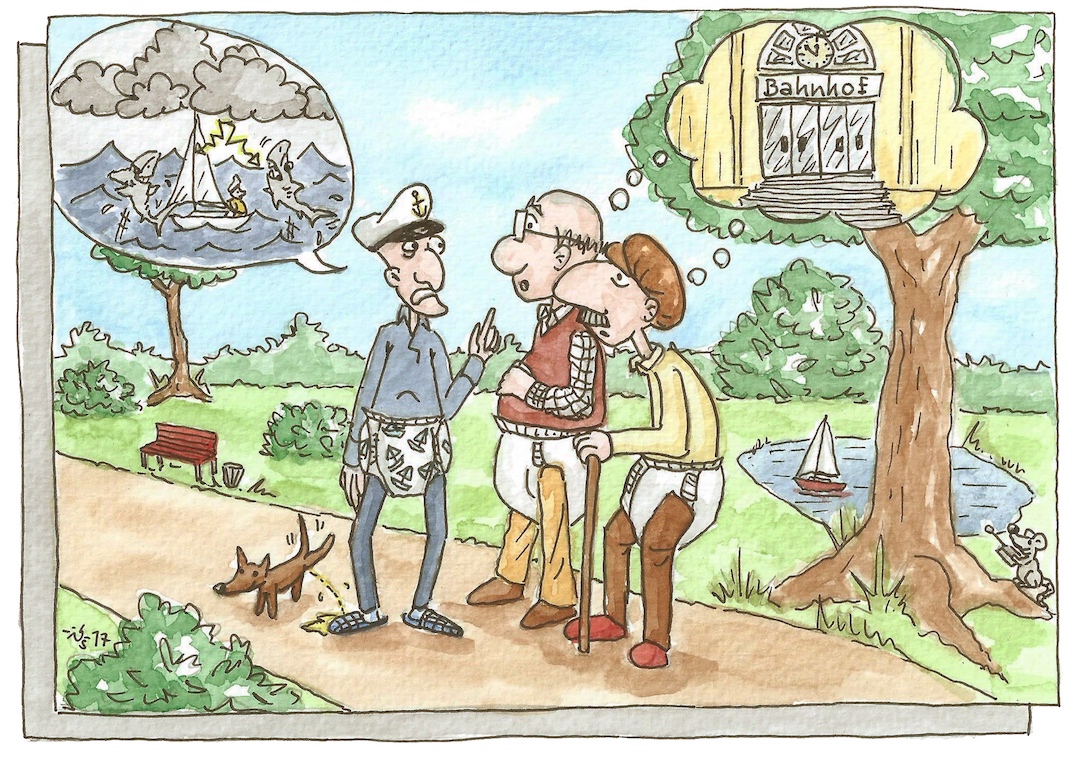
The difference between the press releases created for the specialist sailing media and the output on conventional social media has been marked and the fact that actual sailors are the only target group that seems to be interested suggests it might be worth at least questioning this approach. This may well explain why potential sponsors have so far shown so little interest too.
QUALITY AND TARGET GROUPS
– My well-visited blog is a very good way of reaching interested sailors
– Sailing magazines, who should have sailors’ interests at the very top of their list of priorities
– Sailing forums in the US and the UK, whose initial interest in the GGR rapidly ebbed away
– Sailing forums in Germany, where interest in the GGR had essentially dwindled to nothing by 2018
– Facebook, where comments consistently betrayed an absence of interest among serious sailors…
The general question: are excessively streamlined editorial teams actually willing and able to commit the time and resources necessary to research the issues? Note that this is quite separate from questions concerning their expertise and independence.
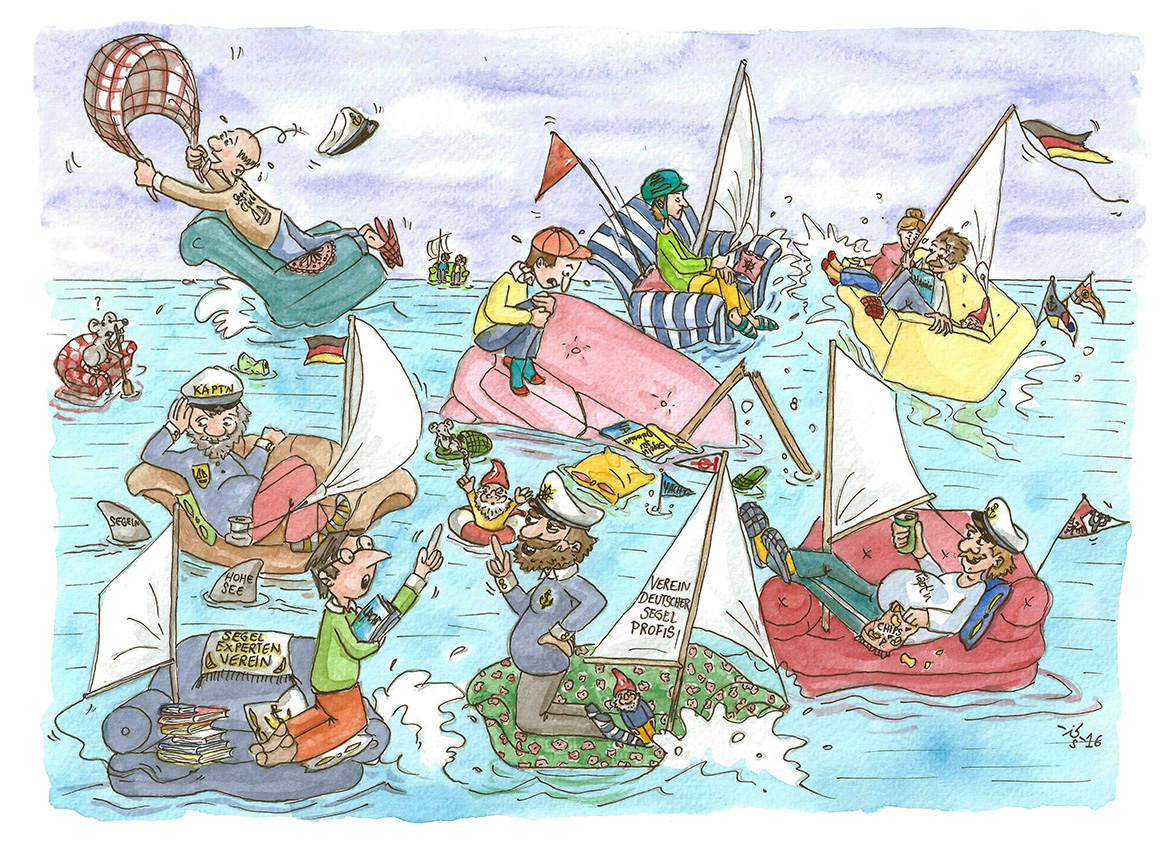
The response to my first press release published here was a completely new experience for me. I had previously never even considered doing such a thing – any more than I would consider putting an advert in sailing magazines (which even insiders refer to us advertising graveyards). Support fairly poured in from the USA and Canada, while from the UK came reassurance that my expertise was welcomed and respected. Germany though responded with silence, but for a single confirmation that my press release “had been noted”. So a magazine that describes itself as “leading in Europe” apparently has no interest in a subject of the utmost importance for bluewater sailing. I didn’t know whether to laugh or cry!
Does this point to a lack of professionalism? Do these people need the facts dished up to them on a silver platter before they’ll take any notice? Or is this in fact a case of readers intentionally being denied information because management thinks it is unimportant? An interesting riddle that demands to be solved!
Previously I would have thought serving the interests of the bluewater community present and future formed part of the raison d’être of the sailing press. I have made the iceberg comparison before: the active bluewater sailors are just the visible tip of a vast body of planners and dreamers and – wouldn’t one think – loyal readers? Perhaps our journalists felt comfortable with the fast turnaround copy-and-paste approach because just about everyone else was doing the same thing, but for me some proper in-depth research seems like the only real way to respect the readership. Anything less is just lip-service.
Research worthy of the name has remained scarce so far, the few examples being as follows:
– Robin Knox-Johnston’s investigation into heavy weather tactics, a German translation of which recently appeared in FLOAT MAGAZIN.
– John Harries’ investigation intoimproving safety in the GGR was published on the Attainable Adventure Cruising website, where it has generated 107 comments so far
– The Windpilot Blog has published several articles looking at windvane self-steering in the GGR
– YACHTING MONTHLY has just published a special feature on windvane steering based on an earlier report from 2018 (and hopefully we can look forward to more in the same vein).
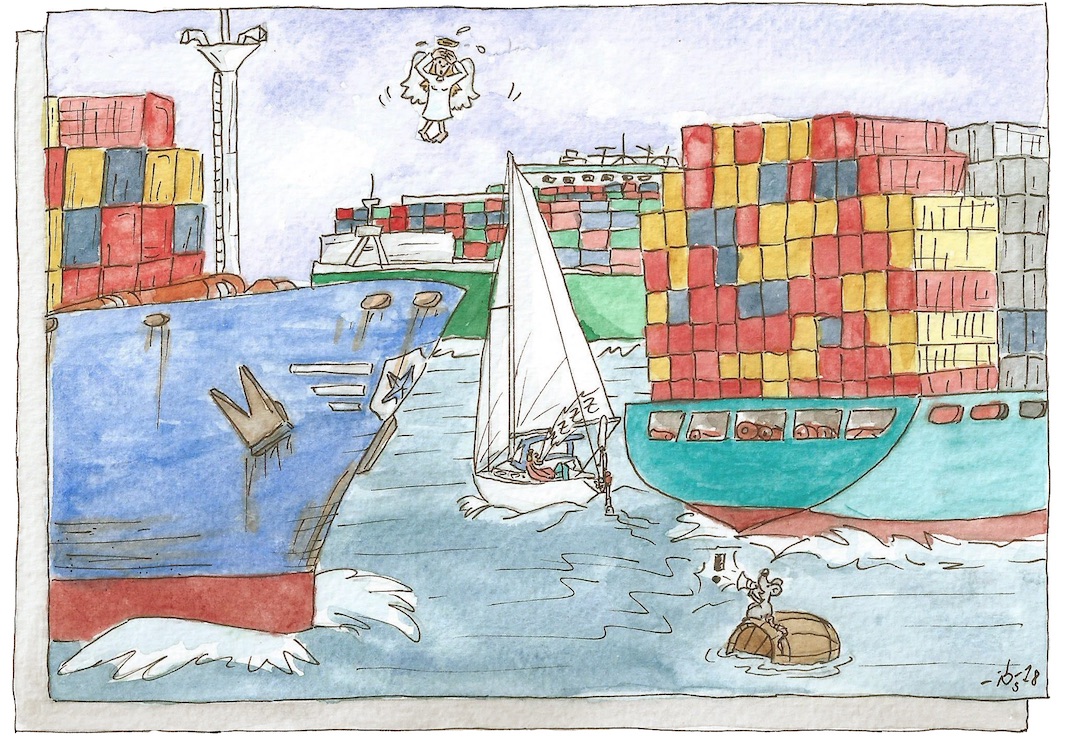
Also out there on the web is an interview with Istvan Kopar published on NO-FRILLS-SAILING, Light on insight and heavy on unchallenged blame, it has been quoted and promoted by both Istvan and Don – apparently with no qualms about objectivity or fairness. I added my own comment under the interview on the No-frills site just to lend some context, but the blog operator didn’t see fit to publish it, so I’m reproducing it here:
“Dear Lars Reisberg, When you suggested a “quick interview” on the subject of self-steering and I pointed out that it’s quite a complicated subject to do quickly, your response was “OK, let’s leave it then”. Maybe this is part of the reason this report (the Kopar interview) leaves such a bad aftertaste. Is it not rather self-defeating to travel all the way to Les Sables (and you may well have been the only journalist to do this) to grant Istvan Kopar the honour of an interview and then omit to check your facts by asking the manufacturer for comment? You risk making yourself an accessory for a man who continues to do everything in his power to avoid accepting responsibility for his own mistakes. Follow the links below to learn more.
Peter Foerthmann”
The man behind the blog is a one-time competitive cyclist now busy resurrecting an old 33-foot cruiser and enjoying finding his way in a new sport. And reaching out to equipment suppliers in pursuit of interviews. His blog concept strikes me as unconventional:
“This blog is ad free. I do not get money from firms and brands I will feature here. If you own a brand and want me to test your products, please feel free to contact me. But be aware: I will be honest about my feelings and experiences about and with your product or service …”
The “be aware” bit troubles me. Hopefully it just means be nice and don’t expect any favours, in which case I completely agree. I hope we aren’t dealing with the kind of nice that involves a quid pro quo!
SUMMARY
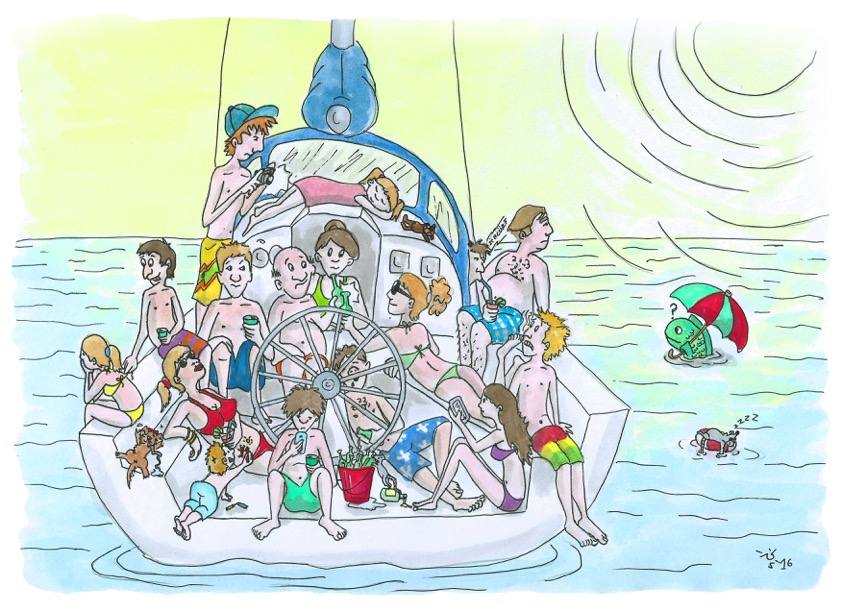
It appears, then, that our esteemed nautical press is unwilling or unable to put any effort into providing its readers with a reasoned report tackling the big issues of an event like the GGR. Fact-checking what content it does release seems to be a low priority too: whichever journalists described Uku Randmaa as a Finn and Igor Zaretzkiy as the victim of a dismasting, for example, clearly weren’t paying attention and clearly didn’t consider that a bar to writing about the event. I can’t help suspecting that the steady drip-drip of minor frustrations highlighted by these two examples bears much of the blame for our magazines’ shrinking sales: discerning readers expect better and today they have other sources at their disposal.
Arecent video from the organiser shows that he still remains immune to any new insights that could help him begin to grasp how transom ornamentation has changed over the last few decades.
Or are we to believe the importance of LATERAL OVERLOAD PROTECTION for servo-pendulum systems remains a mystery to him? Participants in the next GGR, should there be one, would do well not to rely on a single source of information in important matters like self-steering, especially if that source hasn’t changed his tune in years and seems not to appreciate the trouble his ill-founded advice could create for his fleet. I had thought my investigations in the WINDVANE STRIPTEASE articles at least might have found their way into his consciousness, but apparently not.
What are we to think when a manufacturer of windvane self-steering systems – the importance of which in the GGR everyone must surely recognise – has to serve up what is a complicated topic to journalists in simplified form only then to discover that important details (be it due to personal preference or plain lack of understanding) are replaced with less important content or left out altogether because they wouldn’t fit neatly in the page space allowed? Frustrating doesn’t come close!
Journalists who grow out of touch with their readers and lose their sense of what readers need to read face irrelevance and obsolescence. They may feel they know better, but will that be any consolation when nobody reads them any longer? The internet is a wonderful thing because it allows messages to spread unplugged, organically, without having to clear the editorial hurdle or beg for attention from the unelected arbiters of what matters.
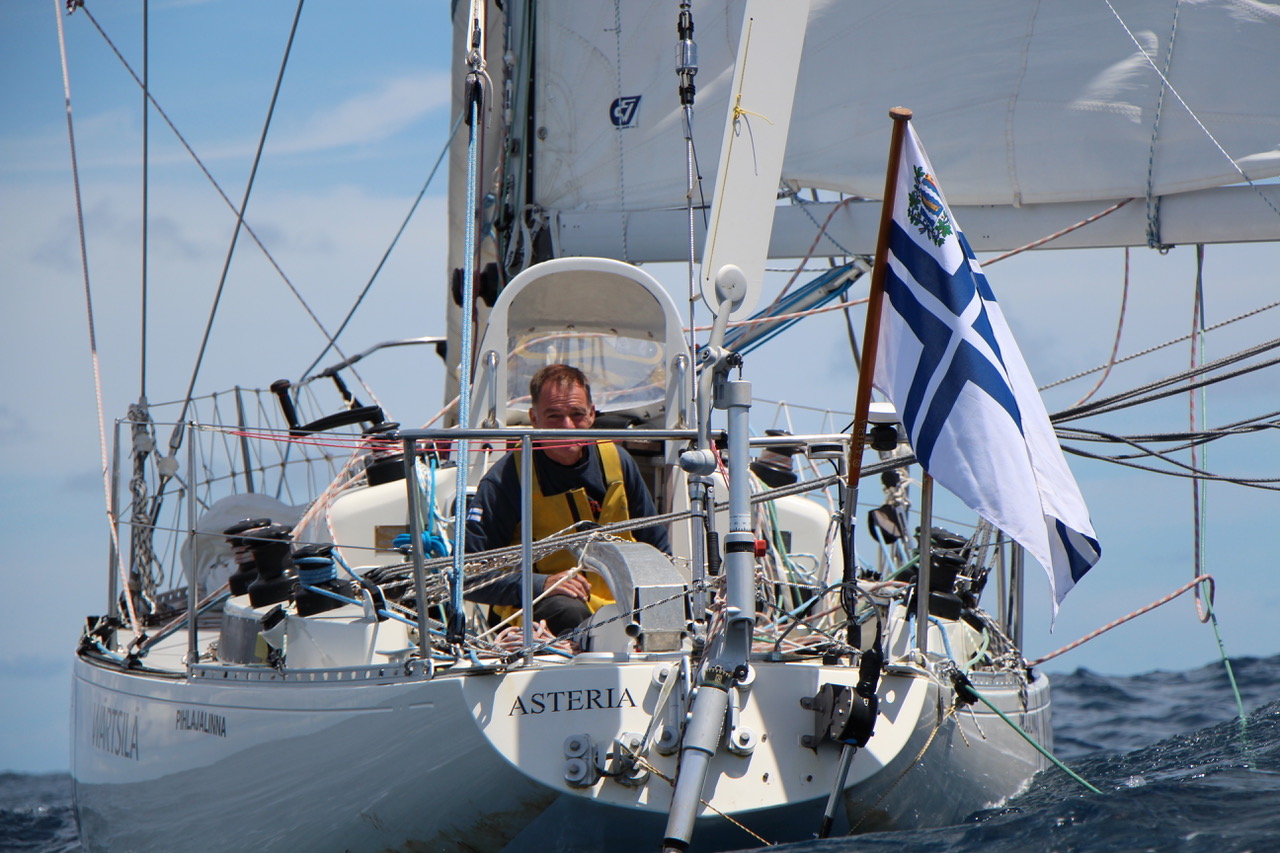
My experiences of the GGR and the technical conclusions I have drawn from it are on the record. None of my five systems broke and spare parts consumption was moderate. My precaution of providing each of the sailors with a spare Pacific turned out to be unnecessary. I will be passing on a special thank you to Tapio for taking his second Windpilot system around the world without once removing it from its bunk and sail bag.
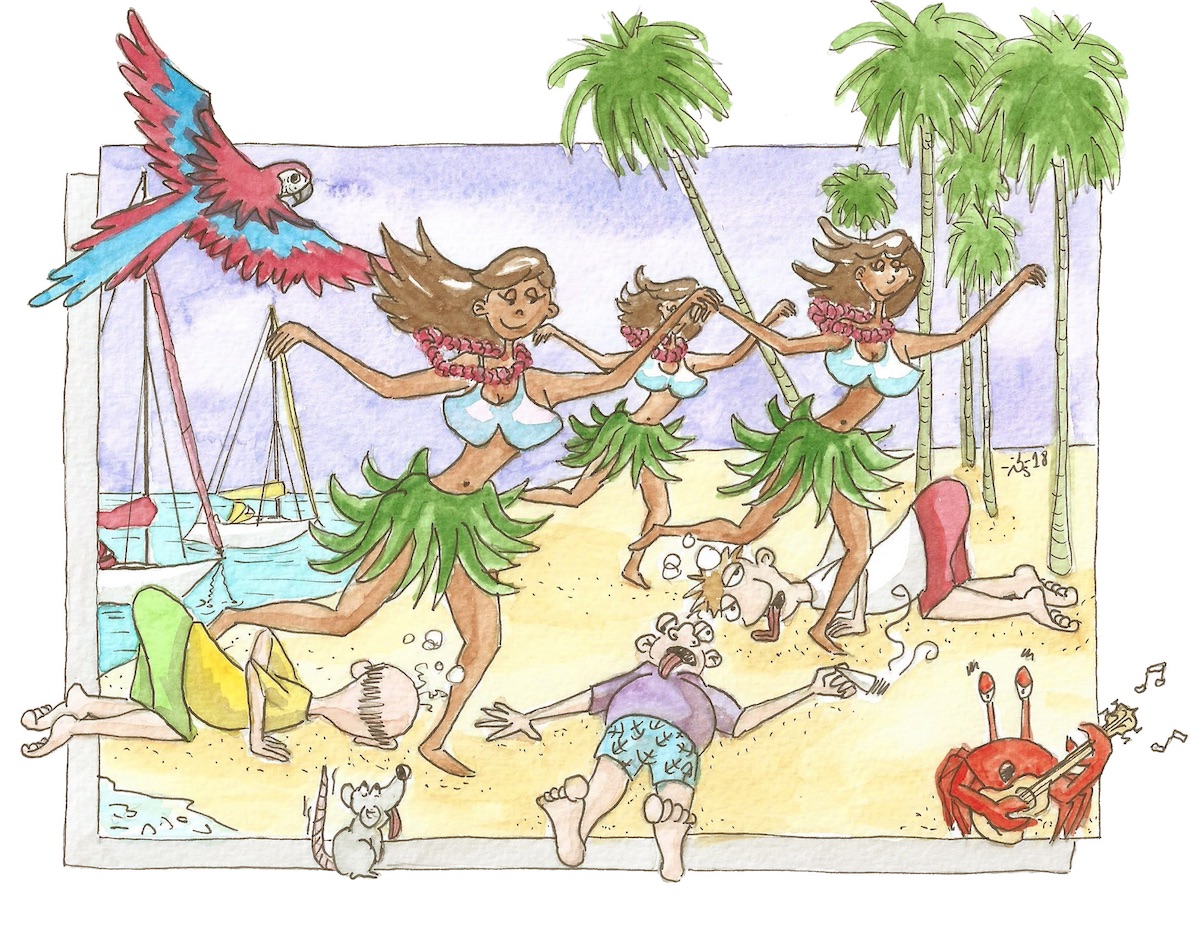
My equipment might have had a relatively uneventful few months, but I can’t say the same of its designer. I feel I got a very raw deal from the organiser. He had a sponsor – one of my competitors – to keep happy and, in Istvan Kopar, a sailor eager to generate as much bad press as possible for Windpilot. My interests never stood a chance. When autocratic behaviours take the place of objective neutrality, I say follow the money.
I sent Don an e-mail on 9 October 2016 offering my support to the GGR sailors. He replied, six weeks later, as follows:
The situation is that we very early on established a joint relationship with Hydrovane which is obviously exclusive and we are quite happy about that so unfortunately, we are unable to have another self-steering system on board … So I hope you enjoy watching the Race and again thanks for the interest. All the very best for now and the future
Don McIntyre
Now of course I had no intention of watching the race. I wanted to be in the thick of it! Obviously this upset his plans: he didn’t like it and he certainly wasn’t going to sit back and let me get on with it.
But get on with it we did, one way or another!
Peter Foerthmann
Hamburg 11 May 2019





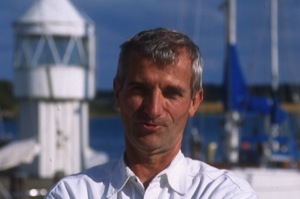
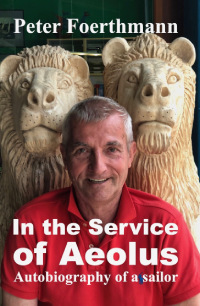

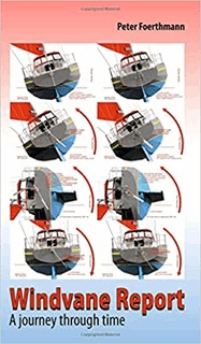
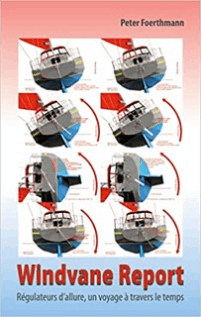
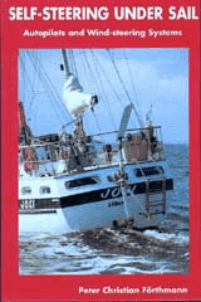
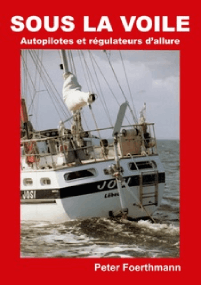

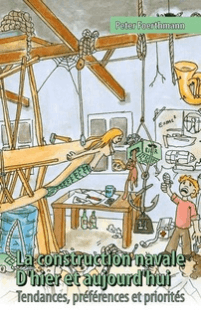
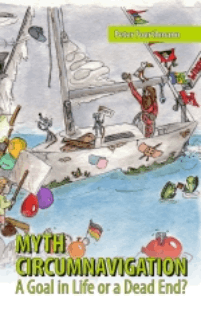
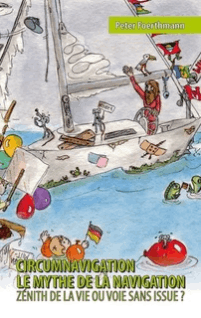
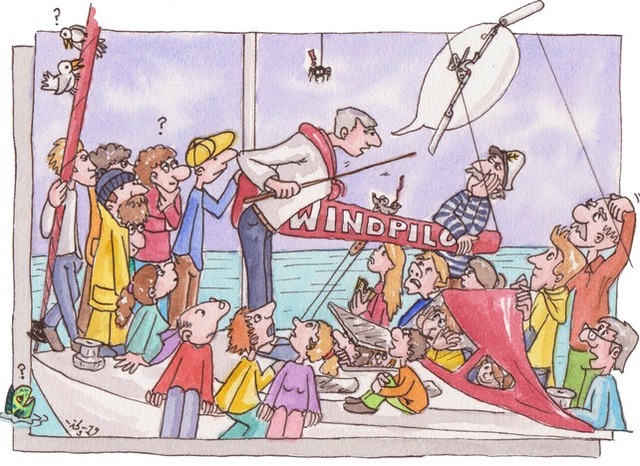
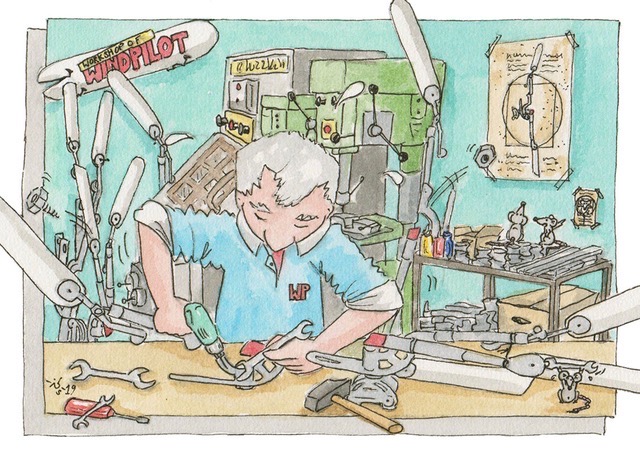
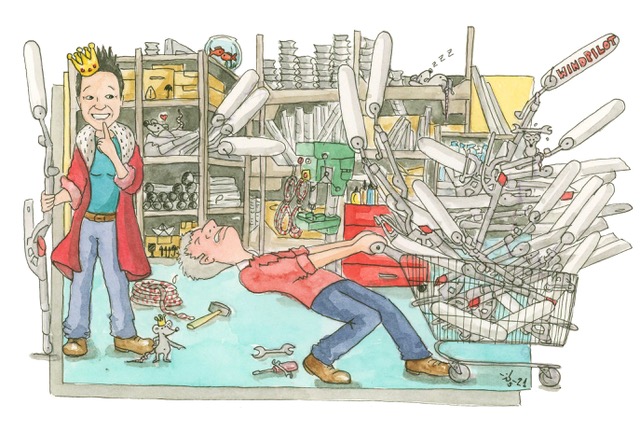
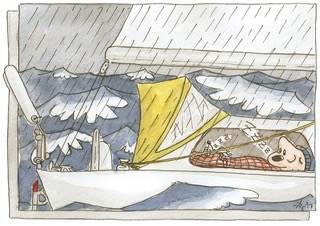
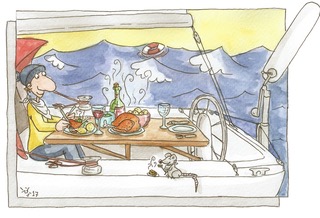
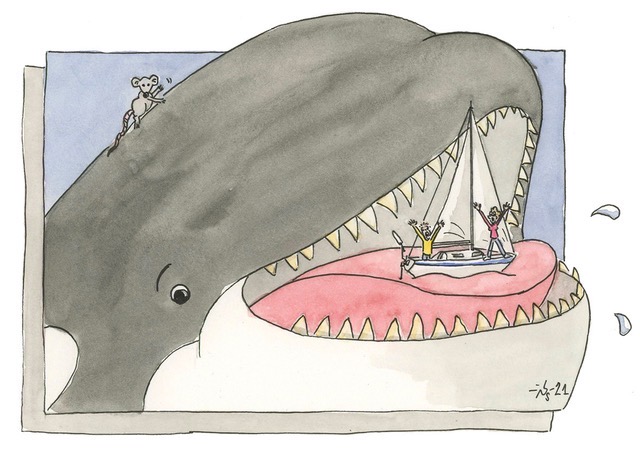
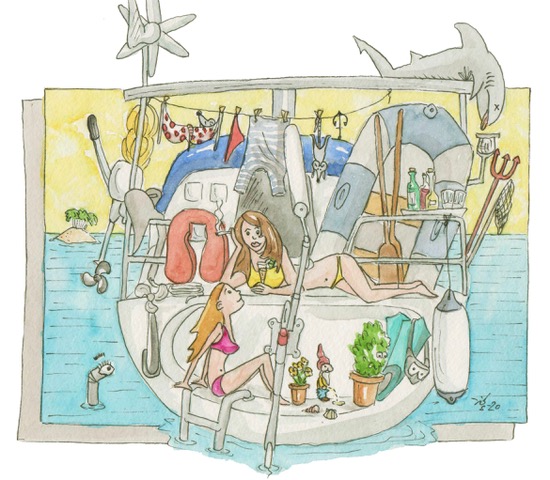
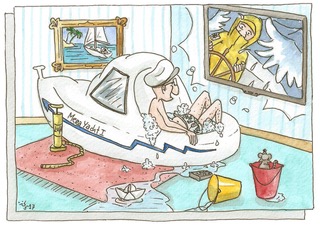
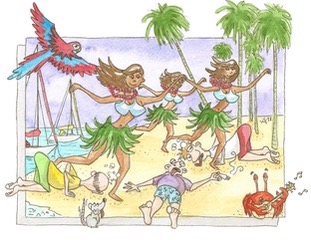
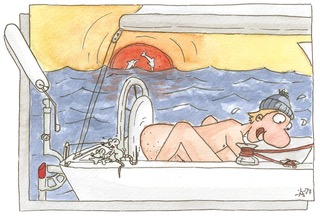
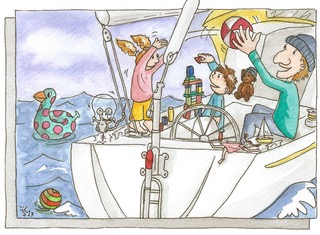
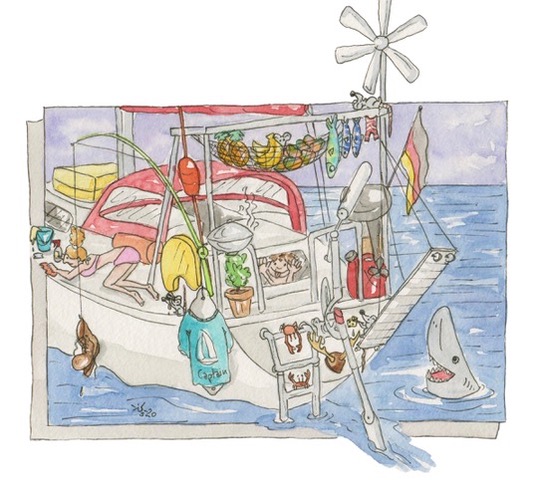

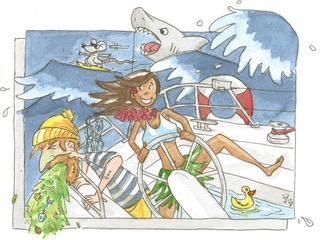

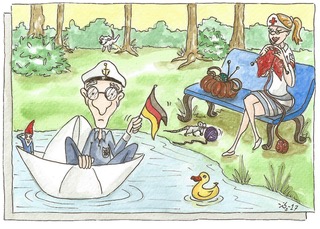
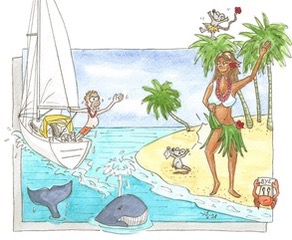
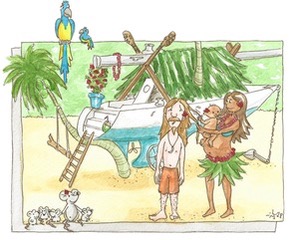
Dear Peter,
I have read your blogs about windvanes and the GGR with interest. As you may know I did my Moitessier and renounced the race long before the start in Dec 2016, not as classy perhaps that way round, but the sentiment was the same. Resigning from the race was one of the best decisions I have ever made! What a sad state of affairs this is, it should have been a fantastic event that inspired the next generation of sailors. Instead it has been a completely lacklustre affair. Above all what has been repeated shown is the carelessness of the organisers.
I don’t think anybody with even a small antenna for integrity now gives what the GGR organisers do or say any serious consideration. They have successfully undermined themselves repeatedly. Your customers will, by their nature, have a sense of this. You find yourself on the right side of the argument around this race and the way it has been conducted. If I was Hydrovane, or another of Don’s pets, I would be feeling desperately embarrassed by him, the race and how terribly it has all been mismanaged.
It’s a great shame and a tremendous opportunity squandered.
I can’t excuse the way you have been treated, but it really shows what little the race organisers know about caring for sponsors and acting professionally. It reflects badly on them, not on you. I hope you can put this behind you and not give all this too much more though – they really are not worth it!
Your product looks excellent. It’s an elegant design and nothing that has been reported in the GGR would put me off from recommending them to the sailors I advise. For any long voyage any design will require maintenance and probably repair. Yours faired as well as any of the others it seems.
Yours sincerely,
Tim Newson